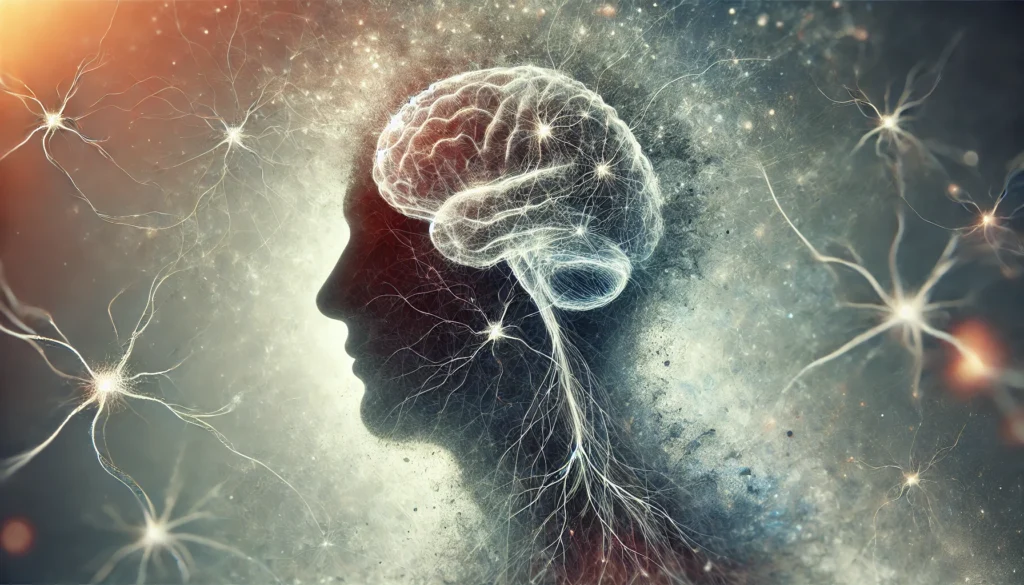Neurocognitive impairment refers to a decline in cognitive function that can occur due to various neurological conditions. It encompasses a wide range of cognitive issues, from memory lapses to severe cognitive illnesses. These impairments can have profound effects on an individual’s quality of life, impacting memory, attention, language, and problem-solving abilities.
You may also like: Tips to Improve Low Average Memory Performance
Defining Neurocognitive Impairment
Neurocognitive impairment is not a singular condition but a spectrum of cognitive dysfunctions. It can range from mild cognitive impairment (MCI) to more severe forms like Alzheimer’s disease. Understanding the spectrum is crucial for tailoring treatments and interventions.
The Scope of Cognitive Issues
Cognitive issues under the umbrella of neurocognitive impairment are varied. They can include difficulties with executive functions, language processing, and even visual-spatial tasks. Recognizing the diverse nature of these issues is essential for comprehensive care.
Impact on Daily Living
The effect of neurocognitive impairments on daily life is profound. Tasks that were once simple, like remembering appointments or following conversations, can become challenging. This impact extends to both personal and professional environments, necessitating adaptive strategies.
Common Neurocognitive Problems
The spectrum of neurocognitive deficits includes mild cognitive impairment (MCI), Alzheimer’s disease, dementia, and other neurological cognitive disorders. These conditions are often progressive, leading to incurable neurocognitive decline if not addressed early. The meaning of cognitive issues varies, but generally, they refer to difficulties with mental processes that are crucial for everyday functioning.
Mild Cognitive Impairment (MCI)
MCI is often a precursor to more severe cognitive disorders. It involves noticeable declines in cognitive abilities that are greater than expected for a person’s age but not severe enough to interfere significantly with daily life. Early detection can lead to better management and outcomes.
Alzheimer’s Disease
Alzheimer’s is a progressive disease that affects memory and other critical cognitive functions. It is the most common cause of dementia among older adults. Understanding its progression and symptoms can aid in early intervention and care planning.
Other Neurological Cognitive Disorders
Beyond Alzheimer’s and MCI, there are various other cognitive disorders like vascular dementia and Lewy body dementia. Each has distinct characteristics and requires unique approaches for management and treatment.
Causes of Neurocognitive Impairment
Neurocognitive disorders arise from a variety of factors, including genetic predispositions, environmental influences, and lifestyle choices. Let’s delve deeper into these causes:
Genetic Factors
Genetic predisposition plays a significant role in the development of neurocognitive disorders. For instance, certain genes have been linked to an increased risk of Alzheimer’s disease. Understanding one’s genetic background can help in assessing the risk of developing neurocognitive impairments.
The Role of Genetics in Cognitive Health
Genetics can be a powerful determinant of cognitive health. Specific genes, like the APOE-e4 allele, have been associated with a higher risk of Alzheimer’s. Genetic counseling and testing can provide insights into individual risk factors.
Inherited vs. Sporadic Cases
While some neurocognitive disorders are inherited, many cases are sporadic with no clear familial link. Understanding the difference can guide individuals and families in managing expectations and planning for potential outcomes.
Genetic Research and Future Directions
Ongoing research into the genetic basis of neurocognitive disorders is uncovering new potential therapeutic targets. Innovations in gene editing and personalized medicine hold promise for future interventions.
Environmental Influences
Environmental factors, such as exposure to toxins, brain injuries, and chronic stress, can contribute to neurocognitive decline. Traumatic brain injuries and repeated concussions are known to cause long-term cognitive issues. Moreover, exposure to pollutants and heavy metals has been shown to adversely affect brain health.

Impact of Toxins and Pollutants
Environmental pollutants, like lead and mercury, have been linked to cognitive decline. Understanding these risks can lead to better preventive measures and policy changes to protect brain health.
Traumatic Brain Injuries and Cognitive Decline
Injuries to the brain, whether from accidents or sports, can have lasting effects on cognitive function. Rehabilitation and protective strategies are essential for those at risk.
Chronic Stress and Its Effects on the Brain
Chronic stress has a profound impact on brain health, contributing to neurocognitive decline. Stress management techniques can play a critical role in maintaining cognitive function.
Lifestyle Choices
Unhealthy lifestyle choices, including poor diet, lack of exercise, smoking, and excessive alcohol consumption, can exacerbate neurocognitive decline. On the flip side, engaging in regular physical activity, consuming a balanced diet rich in antioxidants, and maintaining social connections can help mitigate cognitive decline.
The Impact of Diet on Cognitive Health
Nutrition plays a critical role in brain health. Diets rich in fruits, vegetables, and omega-3 fatty acids are associated with reduced risk of cognitive decline. Conversely, high sugar and processed foods can impair cognitive function.
Exercise and Brain Function
Regular physical activity is known to enhance cognitive performance and protect against decline. Exercise increases blood flow to the brain and stimulates the growth of new neural connections.
Social Engagement and Cognitive Preservation
Maintaining strong social ties is crucial for cognitive health. Social activities and relationships provide mental stimulation and emotional support, reducing the risk of cognitive impairment.
Effects of Neurocognitive Impairment
The effects of neurocognitive impairment can be wide-ranging, affecting individuals physically, emotionally, and socially. Here are some key areas impacted by cognitive decline:
Memory and Learning
Memory problems are often the most noticeable symptom of neurocognitive disorders. Individuals may struggle with remembering recent events or learning new information. This can lead to difficulties in both personal and professional settings.
Short-term vs. Long-term Memory Issues
Short-term memory is often affected first, with individuals forgetting recent conversations or appointments. Long-term memory issues may develop, impacting the recall of past events and learned skills.
Impact on Learning Abilities
Cognitive impairment can hinder the ability to learn new skills or information. This affects professional development and personal growth, highlighting the need for supportive learning environments.
Coping Strategies for Memory Loss
Memory aids, such as notes and digital reminders, can be beneficial. Cognitive therapy and memory training exercises may also help improve recall and learning capabilities.
Emotional Well-being
Cognitive decline can also affect emotional health, leading to increased anxiety, depression, and mood swings. The inability to perform tasks that were once easy can result in frustration and decreased self-esteem.
Anxiety and Depression in Cognitive Disorders
Anxiety and depression are common among individuals with cognitive impairments. Understanding these emotional challenges is crucial for providing comprehensive care and support.
Mood Swings and Behavioral Changes
Mood swings and behavioral changes can occur as cognitive decline progresses. These changes can strain relationships and require careful management and understanding.
Building Emotional Resilience
Building emotional resilience through therapy, support groups, and mindfulness practices can help individuals cope with the emotional challenges of cognitive decline.
Social Interactions
As neurocognitive issues progress, individuals may find it challenging to engage in social activities. Communication difficulties and forgetfulness can lead to social withdrawal, exacerbating feelings of loneliness and isolation.
Communication Challenges
Communication difficulties can arise from language impairments or memory issues. Supportive communication techniques can help individuals remain engaged in social interactions.
Overcoming Social Withdrawal
Encouraging participation in social activities and providing accessible environments can help prevent social withdrawal. Support networks play a crucial role in maintaining social engagement.
Reducing Loneliness and Isolation
Combating loneliness involves creating supportive communities and fostering connections. Technological solutions, like virtual meetups, can also help maintain social ties.
Managing Neurocognitive Impairment
While some neurocognitive disorders are incurable, there are strategies to manage symptoms and improve quality of life. Here are some practical approaches:
Cognitive Rehabilitation
Cognitive rehabilitation involves structured activities designed to improve cognitive functions. This can include memory exercises, problem-solving tasks, and strategies to enhance attention and concentration.
Tailoring Rehabilitation to Individual Needs
Cognitive rehabilitation should be personalized to address the specific deficits and strengths of each individual. Customized programs can maximize the effectiveness of rehabilitation efforts.
Techniques and Tools for Cognitive Enhancement
A variety of tools and techniques, such as brain training apps and memory aids, can support cognitive rehabilitation. These resources provide accessible and engaging ways to improve cognitive skills.

The Role of Professional Guidance
Professional guidance from occupational therapists and psychologists can enhance the success of cognitive rehabilitation. These experts can design and monitor effective intervention plans.
Lifestyle Modifications
Adopting a brain-healthy lifestyle can significantly impact cognitive health. This includes regular physical activity, a nutritious diet, adequate sleep, stress management, and maintaining strong social connections.
Incorporating Physical Activity into Daily Life
Finding enjoyable and sustainable forms of exercise is key to maintaining physical activity. Activities like walking, swimming, or yoga can be adapted to different fitness levels and preferences.
Nutrition and Cognitive Health
A balanced diet, rich in antioxidants and healthy fats, supports brain health. Educating individuals about nutritious food choices can empower them to make healthier dietary decisions.
Importance of Sleep and Stress Management
Adequate sleep and stress management are essential for cognitive health. Establishing healthy sleep routines and incorporating relaxation techniques can improve overall well-being.
Medical Interventions
In some cases, medical interventions may be necessary. This can include medications to manage symptoms or therapies to address underlying conditions. Consulting with healthcare professionals can provide guidance on the best course of action.
Pharmacological Treatments
Medications can help manage symptoms of neurocognitive disorders, such as memory loss or mood swings. Understanding potential side effects and working closely with healthcare providers is essential.
Therapeutic Approaches
Therapies, such as cognitive-behavioral therapy (CBT) or occupational therapy, can support cognitive function and emotional well-being. These interventions can be adapted to individual needs and preferences.
Collaborating with Healthcare Professionals
Regular consultations with healthcare professionals ensure that treatment plans are effective and safe. A collaborative approach can lead to better outcomes and quality of life for individuals with cognitive impairments.
Future Implications and Trends
Research in the field of neurocognitive impairment is ongoing, with promising developments on the horizon. Advances in technology, such as brain imaging and genetic testing, are enhancing our understanding of cognitive disorders. Furthermore, the exploration of nootropics and biohacking techniques offers potential avenues for optimizing brain health.
The Role of Technology
Emerging technologies, like artificial intelligence and machine learning, are being utilized to predict and diagnose neurocognitive disorders earlier. These tools are paving the way for personalized treatment plans tailored to individual needs.
Innovations in Brain Imaging
Advanced brain imaging techniques, such as functional MRI and PET scans, are providing deeper insights into brain function and structure. These innovations are crucial for early diagnosis and monitoring of cognitive disorders.
Machine Learning in Cognitive Health
Machine learning algorithms are being developed to analyze large datasets and identify patterns in cognitive decline. These tools can predict disease progression and guide treatment decisions.
Personalized Medicine and Cognitive Disorders
Personalized medicine approaches are increasingly being applied to cognitive disorders. Tailoring interventions based on genetic and environmental factors can enhance treatment efficacy and patient outcomes.
Nootropics and Biohacking
The growing interest in nootropics—substances that enhance cognitive function—and biohacking techniques is leading to innovative approaches to brain health. While still under research, these methods hold promise for improving cognitive performance and mitigating decline.
Exploring Nootropic Compounds
Research into nootropic compounds is expanding, with a focus on substances like caffeine, omega-3 fatty acids, and herbal supplements. Understanding their effects on cognitive function is key to developing safe and effective interventions.
Biohacking for Cognitive Enhancement
Biohacking involves using lifestyle changes and technology to enhance cognitive performance. Techniques like neurofeedback and transcranial direct current stimulation (tDCS) are being explored for their potential benefits.
Ethical Considerations and Safety
As interest in nootropics and biohacking grows, ethical considerations and safety concerns must be addressed. Ensuring informed consent and understanding potential risks are vital for responsible use.

Conclusion
Understanding neurocognitive impairment is essential for anyone interested in maintaining optimal brain health. By recognizing the causes and effects, individuals can take proactive steps to manage symptoms and improve their quality of life. As research continues to evolve, the future holds exciting possibilities for advancing our knowledge and treatment of neurocognitive disorders. Whether you’re a health coach, journalist, or biohacker, staying informed about these developments is key to navigating the complexities of brain health. By embracing a comprehensive approach to cognitive well-being, we can foster healthier, more resilient minds in our communities.
Further Reading:
Mild cognitive impairment (MCI)
Major Neurocognitive Disorder (Dementia)
Important Note: The information contained in this article is for general informational purposes only, and should not be construed as health or medical advice, nor is it intended to diagnose, prevent, treat, or cure any disease or health condition. Before embarking on any diet, fitness regimen, or program of nutritional supplementation, it is advisable to consult your healthcare professional in order to determine its safety and probable efficacy in terms of your individual state of health.
Regarding Nutritional Supplements Or Other Non-Prescription Health Products: If any nutritional supplements or other non-prescription health products are mentioned in the foregoing article, any claims or statements made about them have not been evaluated by the U.S. Food and Drug Administration, and such nutritional supplements or other health products are not intended to diagnose, treat, cure, or prevent any disease.


